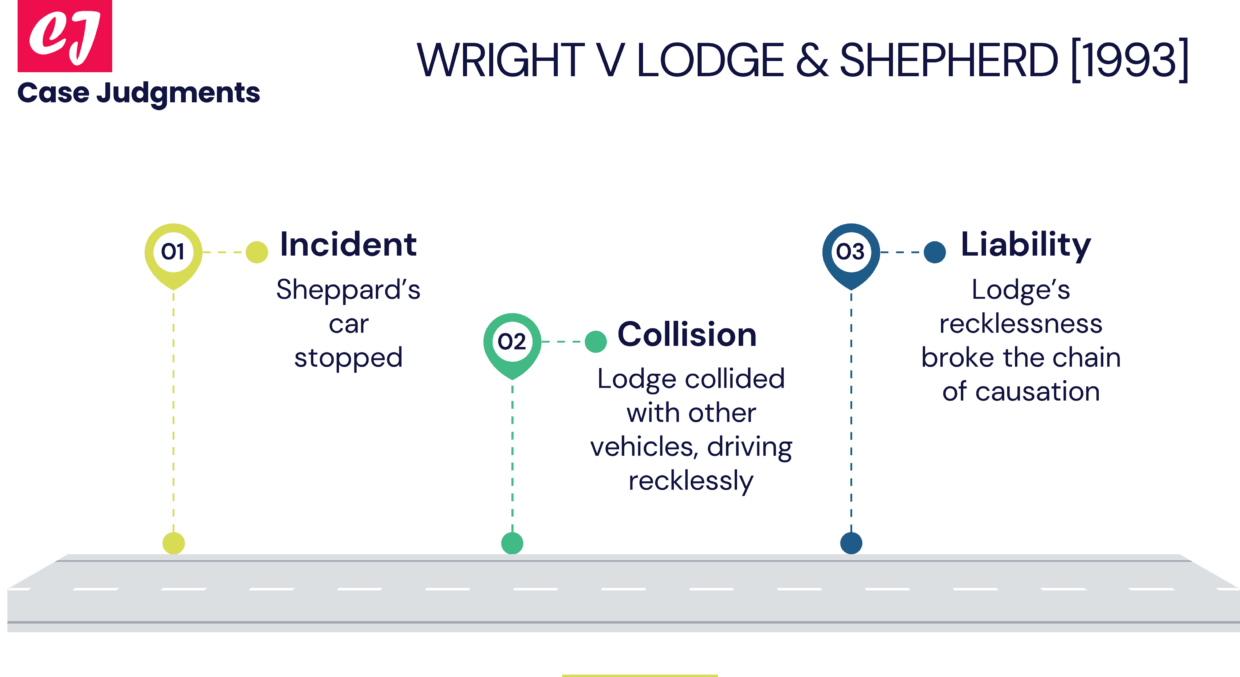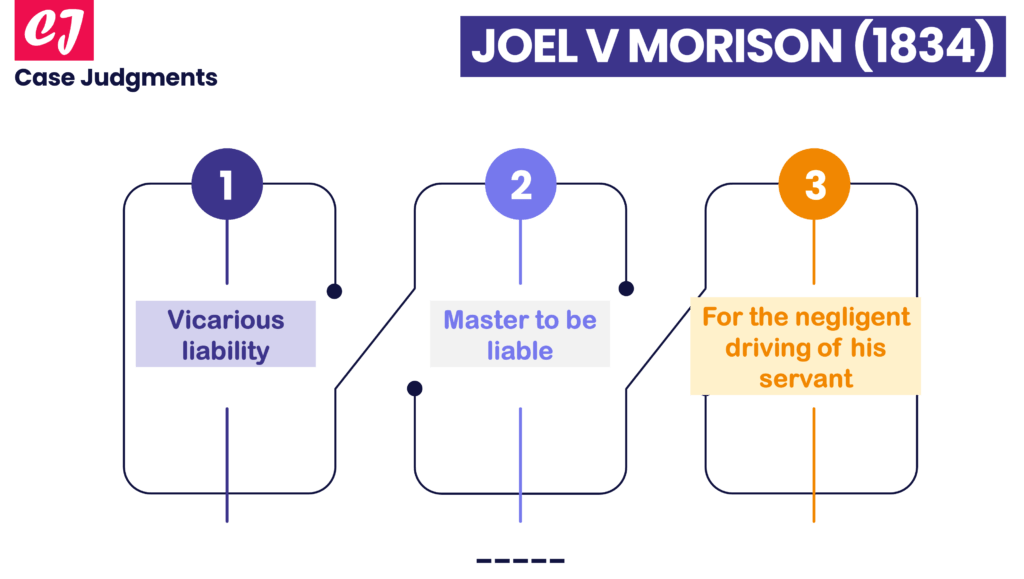
Wright v Lodge [1993]: A Quick Summary
Case name & citation: Wright v Lodge & Shepherd [1993] 4 All ER 299
- Court and jurisdiction: Court of Appeal, England and Wales
- Year of the case: 1993
- Area of law: Causation; novus actus interveniens
What is the case about?
In some cases, it may be possible to prove that a novus actus interveniens, or an intervening act, was the one that caused the damage and that the original defendant is not liable. It is said that an event of this nature “breaks the chain of causation.” Wright v Lodge [1993] is a good illustration of this.
Facts of the case (Wright v Lodge)
It was late at night, and there was a very thick fog outside. Miss Shepherd’s car broke down on a carriageway, and it was determined that she acted negligently by leaving it on the carriageway. Though she tried to restart the car, it couldn’t. Mr. Lodge, a lorry driver, who was driving too fast, collided with the abandoned car, and then swerved across the central reservation, causing multiple other vehicles to pile up. Mr. Wright was injured as his car was hit, and another person was killed. Lodge asserted that Shepherd was partly to blame for the pile up because it was initially caused by her negligence in that she did not move her vehicle off the road.
The issue that was raised
Whether Miss Shepherd could be held liable for the injuries sustained by the drivers of the vehicles which were damaged by the lorry?
Judgment of the Court in Wright v Lodge
Lodge’s recklessness had broken the chain of causation. Even though the presence of Miss Shepherd’s car was a factor in the pile up, it was not a factor that had any legal significance in light of Lodge’s unwarranted and unreasonable behaviour. Shepherd could not have reasonably foreseen that another driver would intentionally or recklessly collide with her car; however, she could have been held liable if the other driver had merely been driving negligently (as was in Rouse v Squires – 1973).
Lodge was not merely negligent but reckless, driving at 60 mph in bad weather conditions. Hence, he was held liable for the injuries sustained by the victims. Nonetheless, the court determined that Miss Shepherd should contribute 10% to the compensation for her passenger.
List of references:
- https://repository.londonmet.ac.uk/7175/1/Barrie%20Guide%20to%20Tort%202022%20VOLUME%20ONE.pdf
- https://nashashibilaw.weebly.com/uploads/2/0/5/9/20597118/principles_of_tort_law.pdf
- https://www.lawteacher.net/cases/wright-v-lodge.php
You might also like:
More from tort law:

